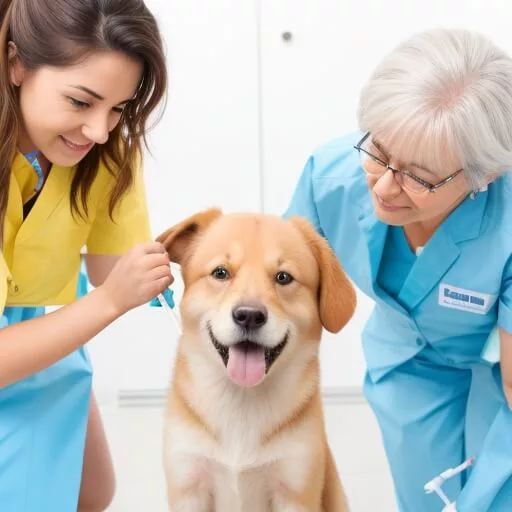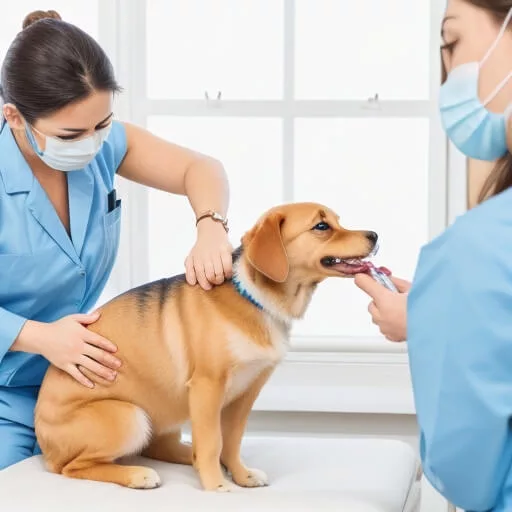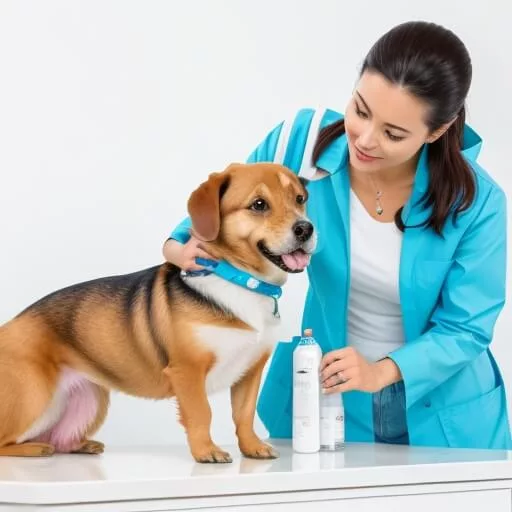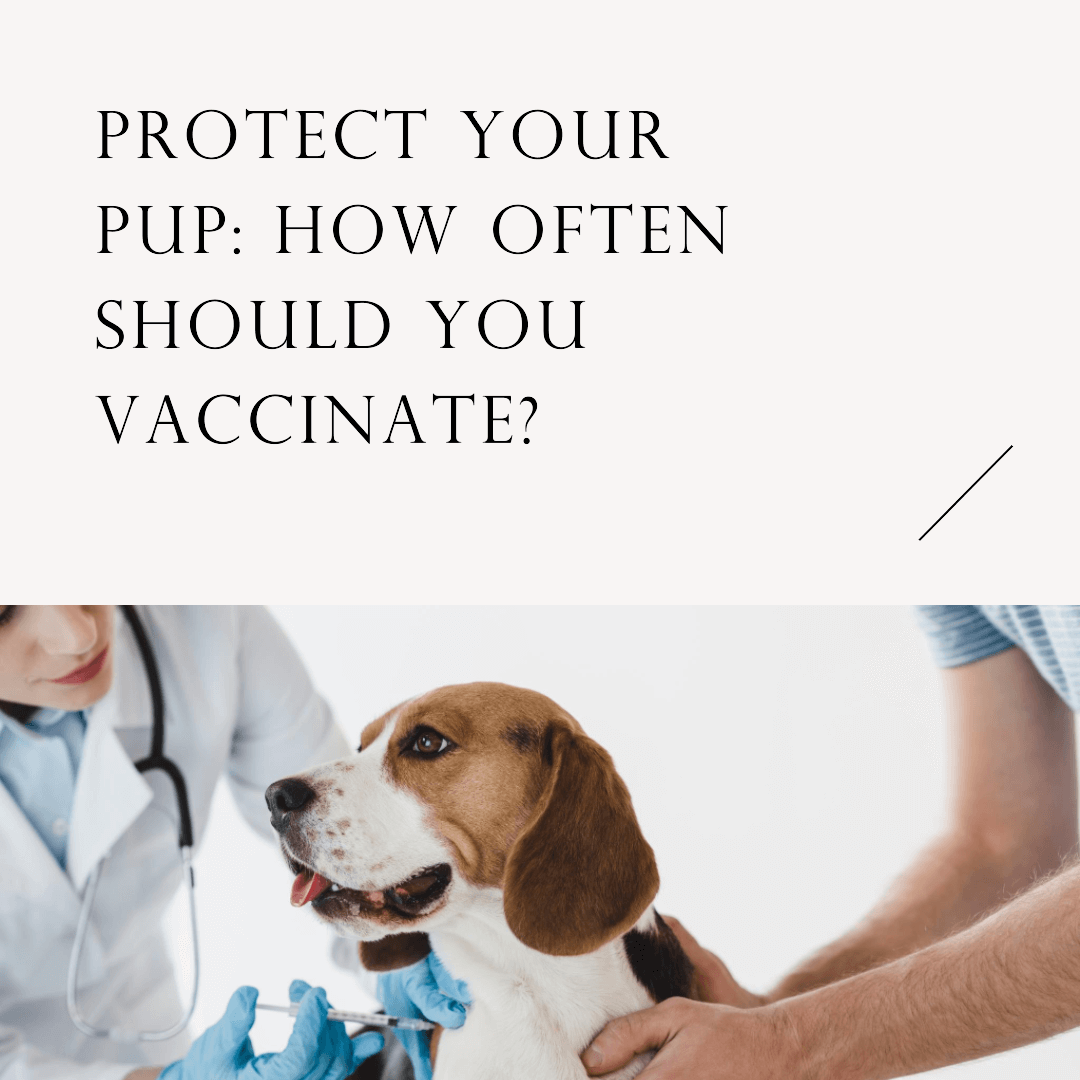How Often Does Dogs Need Shots?
As a dog owner, I know how important it is to keep our furry friends healthy and protected. One of the most crucial aspects of maintaining their well-being is understanding how often dogs need shots. Vaccinations play a vital role in preventing various diseases and ensuring a long, happy life for our pets. In this article, I will provide a comprehensive guide on dog vaccinations, including core and optional vaccines, schedules for puppies and adult dogs, costs, side effects, and more. By the end of this article, you’ll have a better understanding of the importance of vaccinations and how to keep your dog up-to-date on their shots.
Core Vaccinations for Dogs
When it comes to protecting our dogs from various diseases, core vaccinations are essential. These vaccines are considered vital for all dogs, regardless of their breed, age, or location. Here’s a list of core vaccinations and a brief explanation of their importance:
| Vaccine | Disease Protected Against | Importance |
|---|---|---|
| DHPP | Distemper, Hepatitis, Parvovirus, Parainfluenza | These highly contagious diseases can be severe and even fatal, making this combination vaccine crucial for all dogs. |
| Rabies | Rabies | Rabies is a deadly viral disease that affects the nervous system. Vaccination is not only essential for your dog’s health but also required by law in most areas. |
These core vaccinations play a significant role in maintaining your dog’s health and preventing the spread of dangerous diseases. By ensuring your dog receives these vaccines on the recommended schedule, you’re taking a crucial step in safeguarding their well-being and the well-being of other dogs in your community.
Puppy Vaccination Schedule
Getting your puppy vaccinated on time is crucial for their health and well-being. Puppies are more vulnerable to infectious diseases, and timely vaccinations can help strengthen their immune system. Here’s a recommended schedule for puppy vaccinations:
- 6-8 weeks: DHPP (Distemper, Hepatitis, Parvovirus, Parainfluenza) and Bordetella
- 10-12 weeks: DHPP and Bordetella
- 14-16 weeks: DHPP and Rabies
It’s essential to follow this schedule and consult with your veterinarian for any additional vaccines or adjustments based on your puppy’s specific needs. By adhering to the recommended vaccination schedule, you’re taking a vital step in protecting your puppy from dangerous diseases and ensuring their long-term health.

Adult Dog Vaccination Schedule
As your dog grows, it’s essential to continue protecting them from diseases with a proper vaccination schedule. Adult dogs require booster shots to maintain their immunity against various diseases. Here’s a recommended schedule for adult dog vaccinations:
- DHPP (Distemper, Hepatitis, Parvovirus, Parainfluenza): Booster shots every 3 years
- Rabies: Booster shots every 1-3 years, depending on local regulations and the specific vaccine used
It’s crucial to consult with your veterinarian to determine the best vaccination schedule for your adult dog, as individual needs may vary. By keeping your dog up-to-date on their vaccinations, you’re ensuring their continued health and protection against dangerous diseases.
Optional Vaccinations
In addition to core vaccinations, there are non-core vaccinations that may be beneficial for your dog based on their lifestyle, location, and specific risk factors. Here’s a list of optional vaccinations and a brief explanation of their purpose:
- Bordetella (Kennel Cough): Protects against a highly contagious respiratory infection, often recommended for dogs that frequently visit boarding facilities, dog parks, or grooming salons.
- Leptospirosis: Protects against a bacterial infection that can cause kidney and liver damage, often recommended for dogs that spend time outdoors or in areas with wildlife.
- Lyme Disease: Protects against a tick-borne disease that can cause joint pain and other health issues, often recommended for dogs in areas with a high prevalence of ticks.
- Canine Influenza: Protects against a highly contagious respiratory infection, often recommended for dogs that frequently interact with other dogs in social settings.

When considering optional vaccinations, it’s essential to consult with your veterinarian to determine which vaccines are appropriate for your dog based on their specific needs and risk factors. By tailoring your dog’s vaccination plan, you can provide the best possible protection for their unique lifestyle and environment.
Vaccination Costs and Finding a Veterinarian
Vaccinating your dog is an essential part of responsible pet ownership, and it’s crucial to be aware of the costs involved. The average costs of vaccinations can vary depending on factors such as your location and the specific vaccines needed. Here’s a general idea of the costs for some common vaccinations:
- DHPP (Distemper, Hepatitis, Parvovirus, Parainfluenza): Around $25 per shot[4]
- Rabies: Approximately $15 to $100, depending on the area and specific vaccine used[5]
To find a reliable veterinarian for administering vaccinations, consider the following tips:
- Ask for recommendations: Talk to fellow dog owners, friends, or family members who have pets to get recommendations for trustworthy veterinarians in your area.
- Read reviews: Check online reviews and ratings for local veterinarians to get an idea of their reputation and quality of service.
- Visit the clinic: Schedule a visit to the veterinary clinic to assess the facility’s cleanliness, staff friendliness, and overall atmosphere.
- Ask questions: Don’t hesitate to ask the veterinarian about their experience, vaccination protocols, and any concerns you may have about your dog’s health.
By taking the time to research and find a reliable veterinarian, you can ensure your dog receives the best possible care and stays up-to-date on their vaccinations.
Side Effects and Risks
Vaccinations are essential for maintaining your dog’s health, but it’s also important to be aware of the possible side effects and risks associated with them. Some common side effects of vaccinations include:
- Discomfort and local swelling at the vaccination site
- Mild fever
- Decreased appetite and activity
- Sneezing, mild coughing, or other respiratory signs (especially after intranasal vaccines)
These side effects are usually mild and temporary, lasting no more than a day or two. However, if your dog experiences significant discomfort or if the side effects persist, it’s crucial to contact your veterinarian.
On the other hand, the risks of not vaccinating your dog can be severe. Unvaccinated dogs are more susceptible to dangerous diseases, which can lead to severe health issues or even death. By ensuring your dog receives the appropriate vaccinations on the recommended schedule, you’re taking a vital step in protecting their health and well-being.

Vaccination Records and Travel Requirements
Keeping track of your dog’s vaccination records is essential for their health and for meeting various requirements, such as traveling with your pet. Here are some tips for managing vaccination records and understanding travel requirements:
Keeping Track of Vaccination Records
- Request a copy from your veterinarian: After each vaccination, ask your veterinarian for a copy of the vaccination certificate or record.
- Organize records in a folder or digital format: Keep all vaccination records in a dedicated folder or store digital copies on your computer or cloud storage for easy access.
- Update records regularly: Ensure that your dog’s vaccination records are up-to-date by adding new vaccination certificates as they receive them.
Vaccination Requirements for Traveling with Your Dog
- Research destination requirements: Different countries and states may have specific vaccination requirements for dogs entering their territory. Be sure to research these requirements well in advance of your trip.
- Rabies vaccination: Most destinations require proof of a valid rabies vaccination for your dog. This proof typically comes in the form of a rabies vaccination certificate.
- Additional vaccinations: Some destinations may require additional vaccinations, such as Bordetella or Leptospirosis. Check with your destination’s regulations to ensure your dog meets all necessary requirements.
By maintaining organized vaccination records and understanding travel requirements, you can ensure a smooth and stress-free experience when traveling with your dog.
Alternatives to Traditional Vaccinations
In recent years, some dog owners have been exploring alternative vaccination methods to protect their pets from diseases while minimizing potential side effects. One such alternative is the use of homeopathic nosodes. Here’s an overview of this alternative method and its pros and cons:
Homeopathic Nosodes
Nosodes are a type of homeopathic remedy made from the blood, secretions, or excretions of a sick animal or human. They are believed to stimulate the immune system to react against a specific disease, providing protection without the risks and side effects associated with traditional vaccines.
Pros
- Potentially safer: Nosodes are considered a potent, safe, and effective way to help dogs build specific immunity to many major canine diseases without the risks and side effects caused by vaccines.
- Homeoprophylaxis: Homeopathic remedies, including nosodes, can help dogs build and maintain optimum immunity through a process called homeoprophylaxis.
Cons
- Limited scientific evidence: The effectiveness of nosodes as a replacement for traditional vaccines is still a subject of debate, and more research is needed to establish their efficacy.
- Not widely accepted: Nosodes are not widely accepted in the orthodox veterinary community, and finding a veterinarian who supports their use may be challenging.
It’s essential to consult with your veterinarian before considering alternative vaccination methods for your dog. While nosodes may offer some benefits, it’s crucial to weigh the pros and cons and make an informed decision based on your dog’s specific needs and risk factors.
FAQ
Here are the answers to the 20 most frequently asked questions related to dog vaccinations:
- What are the core vaccinations for dogs? Core vaccinations include DHPP (Distemper, Hepatitis, Parvovirus, Parainfluenza) and Rabies.
- How often should puppies get vaccinated? Puppies should receive vaccinations at 6-8 weeks, 10-12 weeks, and 14-16 weeks of age.
- What is the recommended vaccination schedule for adult dogs? Adult dogs should receive DHPP booster shots every 3 years and Rabies booster shots every 1-3 years, depending on local regulations and the specific vaccine used.
- Are there any optional vaccinations for dogs? Optional vaccinations include Bordetella (Kennel Cough), Leptospirosis, Lyme Disease, and Canine Influenza.
- How do vaccinations protect my dog’s health? Vaccinations help build immunity against specific diseases, protecting your dog from illness and reducing the risk of severe health issues.
- Can vaccinations have side effects? Some common side effects include discomfort at the vaccination site, mild fever, and decreased appetite. These side effects are usually mild and temporary.
- What are the risks of not vaccinating my dog? Unvaccinated dogs are more susceptible to dangerous diseases, which can lead to severe health issues or even death.
- How do I know if my dog is up-to-date on their shots? Keep track of your dog’s vaccination records and consult with your veterinarian to ensure they are up-to-date on their vaccinations.
- Are there any specific vaccinations for certain dog breeds? Core vaccinations are recommended for all dogs, regardless of breed. However, optional vaccinations may be more relevant for specific breeds based on their lifestyle and risk factors.
- How much do dog vaccinations cost? The cost of vaccinations can vary depending on factors such as your location and the specific vaccines needed. DHPP shots typically cost around $25, while Rabies shots can range from $15 to $100.
- Can I vaccinate my dog at home? It’s not recommended to vaccinate your dog at home, as vaccinations should be administered by a licensed veterinarian to ensure proper dosage and technique.
- What is the role of booster shots in dog vaccinations? Booster shots help maintain your dog’s immunity against specific diseases, ensuring their continued protection.
- How do I prepare my dog for vaccinations? Make sure your dog is healthy, well-rested, and well-fed before their vaccination appointment. Consult with your veterinarian for any specific preparation instructions.
- What should I do if my dog has a reaction to a vaccination? If your dog experiences significant discomfort or if side effects persist, contact your veterinarian for guidance.
- Are there any alternatives to traditional vaccinations for dogs? Some dog owners explore alternative methods like homeopathic nosodes, but their effectiveness is still a subject of debate, and more research is needed.
- How do I find a veterinarian to administer vaccinations? Ask for recommendations from fellow dog owners, friends, or family members, read online reviews, and visit the clinic to assess the facility and staff.
- Can my dog still get sick even if they are vaccinated? While vaccinations significantly reduce the risk of illness, no vaccine is 100% effective, and your dog may still get sick in rare cases.
- What is the difference between core and non-core vaccinations? Core vaccinations are essential for all dogs, while non-core vaccinations are optional and depend on your dog’s lifestyle, location, and specific risk factors.
- How do I keep track of my dog’s vaccination records? Request a copy of vaccination records from your veterinarian, organize them in a folder or digital format, and update them regularly.
- Are there any specific vaccination requirements for traveling with my dog? Different countries and states may have specific vaccination requirements for dogs entering their territory. Research these requirements well in advance of your trip and ensure your dog meets all necessary requirements.
Hi, I’m John and I love dogs. Ever since I was a kid, I always wanted to have a furry friend by my side. I grew up with a golden retriever named Max, who taught me a lot about loyalty, friendship, and fun. He was my best buddy for 12 years, and I miss him every day.
